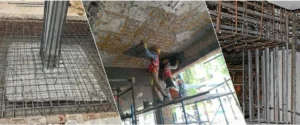
Solar panels work best when they’re clean. That might sound too simple, but it’s true. When sunlight hits your solar panels, it gets converted into electricity. But if there’s dirt, dust, bird droppings, or even smog on the surface, that sunlight has a hard time reaching the actual cells. This is where residential solar cleaning plays a huge role. By keeping panels clean, you’re helping them produce more energy with less struggle.
Why Dirty Panels Struggle to Perform
When panels get dirty, they lose their ability to absorb sunlight effectively. Think of it like driving with a dirty windshield—it blocks your view and makes the road harder to see. The same happens with solar panels. A layer of grime can cut energy production by 15% to 25%, and in some dusty areas, it can get even worse.
Nature Isn’t Always Helpful
Some might assume that rain takes care of the dirt. While rain does wash away some loose dust, it usually leaves behind spots and streaks. Over time, these can build up into a stubborn film that sticks around even after multiple showers. So even in wetter climates, panels can still end up needing a proper clean.
How Cleaning Works in Your Favor
When your panels are spotless, sunlight hits the cells directly. That means your system doesn’t have to work harder to produce the same amount of power. It’s like giving your solar panels a breath of fresh air. With less resistance, energy conversion happens more smoothly. This efficiency directly translates into lower utility bills and better performance throughout the year.
Maintenance Equals Savings
A clean solar system doesn’t just produce more power—it also lasts longer. Dirt and grime can slowly cause damage to the surface of your panels. Over time, they might even cause hotspots, which lead to permanent panel damage. Regular cleaning prevents this from happening, saving you from costly repairs or replacements in the future.
Cleaning Frequency: How Often Is Enough?
Most experts suggest cleaning solar panels about twice a year. But this depends on your location. If you live near a construction site, an industrial area, or in a dusty environment, you might need to clean them more often. On the other hand, homes in cleaner suburban or forested areas may get by with fewer cleanings.
DIY vs. Professional Services
Some homeowners prefer to clean their own panels, and that’s perfectly fine if they can reach them safely. A soft brush, gentle soap, and a hose can do the trick. But many prefer to hire professionals. They not only clean the panels with the right tools but also inspect for damage. Plus, it’s safer—especially for those with rooftop systems.
Safety Always Comes First
If your panels are located on a steep or high roof, it’s never a good idea to try and clean them without proper safety equipment. Slips and falls are a real risk. That’s why professional solar cleaning companies exist—they have the tools, the training, and the experience to get the job done right without risking your safety.
How Weather Impacts Cleaning Needs
Your local climate affects how often your panels need attention. In dry, dusty areas, buildup happens faster. In coastal regions, salt from sea air can coat panels and reduce output. In cities, pollution and smog can leave sticky residue. Knowing what your environment throws at your panels can help you plan a more effective cleaning routine.
Does It Really Increase Efficiency?
Yes, it does—and not just by a small amount. Studies and real-world tests show that clean panels can produce up to 25% more electricity than dirty ones. That kind of difference can shift your monthly utility bill and change the overall value of your solar investment. If you’ve already paid to have the system installed, it makes sense to keep it working as efficiently as possible.
Final Thought:
Solar panels are a long-term investment. To make the most of them, regular care is essential. Cleaning doesn’t have to be complicated, but it does have to be consistent. When panels stay clean, they stay efficient—and that means more energy, lower bills, and a better return on your initial costs. So next time your panels look a little dusty, remember that a quick clean could bring them back to peak performance.
